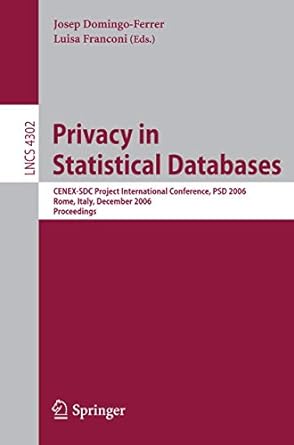Question
Question 1 The declaration statement for a function is referred to as a function prototype . Question 1 options: True False Question 2 Select the
Question 1
The declaration statement for a function is referred to as a function prototype.
Question 1 options:
| True | |
| False |
Question 2
Select the syntactically correct C code for a function prototype.
Question 2 options:
|
|
someAverage = getAverage( a, b, c);
|
|
|
float getAverage( int, int, int);
|
|
|
float getAverage( int x, int y, int z)
|
|
|
none of these
|
|
|
float getAverage( x, y, z );
|
Question 3
Select the syntactically correct C code for a function header.
Question 3 options:
|
|
none of these
|
|
|
float getAverage( int x, int y, int z)
|
|
|
someAverage = getAverage( a, b, c);
|
|
|
float getAverage( int, int, int);
|
|
|
float getAverage( x, y, z );
|
Question 4
Select the syntactically correct C code for a function call.
Question 4 options:
|
|
float getAverage( x, y, z );
|
|
|
float getAverage( int x, int y, int z)
|
|
|
someAverage = getAverage( a, b, c);
|
|
|
none of these
|
|
|
float getAverage( int, int, int);
|
Question 5
rand() is a C standard library function defined in the stdlib.h header file.
Question 5 options:
| True | |
| False |
Step by Step Solution
There are 3 Steps involved in it
Step: 1

Get Instant Access to Expert-Tailored Solutions
See step-by-step solutions with expert insights and AI powered tools for academic success
Step: 2

Step: 3

Ace Your Homework with AI
Get the answers you need in no time with our AI-driven, step-by-step assistance
Get Started


